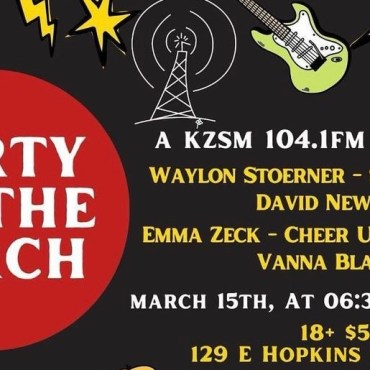Listeners:
Top listeners:
-
play_arrow
KTSW 89.9

By Ally Bolender
Web Content Contributor
You’ve seen it in movies and television: the passed-out students with drawings on their faces. You’ve heard the excuses, “We’re in college! This is what it’s all about!” You’ve been into the apartments with empty liquor bottles shown-off on top of cabinets and walls covered with cardboard boxes of beer. You’ve seen it perpetuated in media, “You can retake a class, but you can’t relive a party.”

The embodiment of college culture circulates around drinking, but where is the line that separates the classic college-student experience and alcohol addiction? Perhaps most will perceive these images of college culture as an excuse to make time for memories, but to many, it can be an excuse to drink as the consequences are no match to the desire.
College is unanimously known as a time for experimenting with alcohol. The media practically portrays this period in our lives as a four-year-long party. But what happens when you graduate and start a 9-to-5 lifestyle? The days of pregaming a pregame, drinking throughout the day and clubbing throughout the night turn into an attempt to relive this rush.
Some of college culture’s most forefront images point to alcoholism. Students drink until blackout — on purpose. There are overly casual admittances, and sometimes brags, by many students that they place partying before education. These students skip classes to drink or accept poor grades due to their fear-of-missing-out on a good time. This culture is perpetuated in the mass media, and to some it is an innocent excuse to live life to its fullest, but to many there is a deeper desire making these choices.
Falling behind, missing class, doing poorly on papers or exams and receiving low grades as a result of drinking is classified as a major sign of addiction, and according to the National Institute on Alcohol Abuse and Alcoholism, about 1 in 4 college students report these academic consequences from drinking. Placing this proportion into Texas State University’s enrollment of 38,644, roughly 9,661 students face academic consequences from drinking.
But in college, it’s commonly considered a part of the lifestyle.
That is where the problem begins. While college culture tells us it’s okay to sometimes avoid responsibilities to drink and party instead, there are students who take this to the extreme. There are students who fall deeply into the culture that they are unknowingly dancing between the thin line that separates college culture and alcoholism.
Roughly 20% of college students meet the criteria for an alcohol use disorder. Many graduates can put their time of excessive drinking behind them, but some are unable to shake the habit they got themselves into. Refusing to acknowledge an alcohol addiction as a college student is too easy, and many students who are dependent on alcohol may not even realize that they are as excessive drinking has been so normalized across college campuses.
Those who were told and shown that there are no limits to drinking during their college years carry this ideology further into life. Alcoholism is a disease, and once you catch it, it is an emotionally and physically difficult process to overcome.
I encourage you to question how much you are drinking, what reason are you drinking for, and how your drinking is affecting your life. Students, check on your peers who may be drinking excessively. College is a time for experimentation, memories and fun, but it is important that you don’t lose sight of why you’re here.
Featured image by Andrew Hueske.
Share this:
- Click to share on Twitter (Opens in new window)
- Click to share on Facebook (Opens in new window)
- Click to share on Tumblr (Opens in new window)
- Click to share on Pinterest (Opens in new window)
- Click to share on Reddit (Opens in new window)
- Click to email a link to a friend (Opens in new window)
- Click to print (Opens in new window)
alcohol alcoholism Ally Bolender College Drinking Texas State
Similar posts
This Blog is Propery of KTSW



Post comments (0)